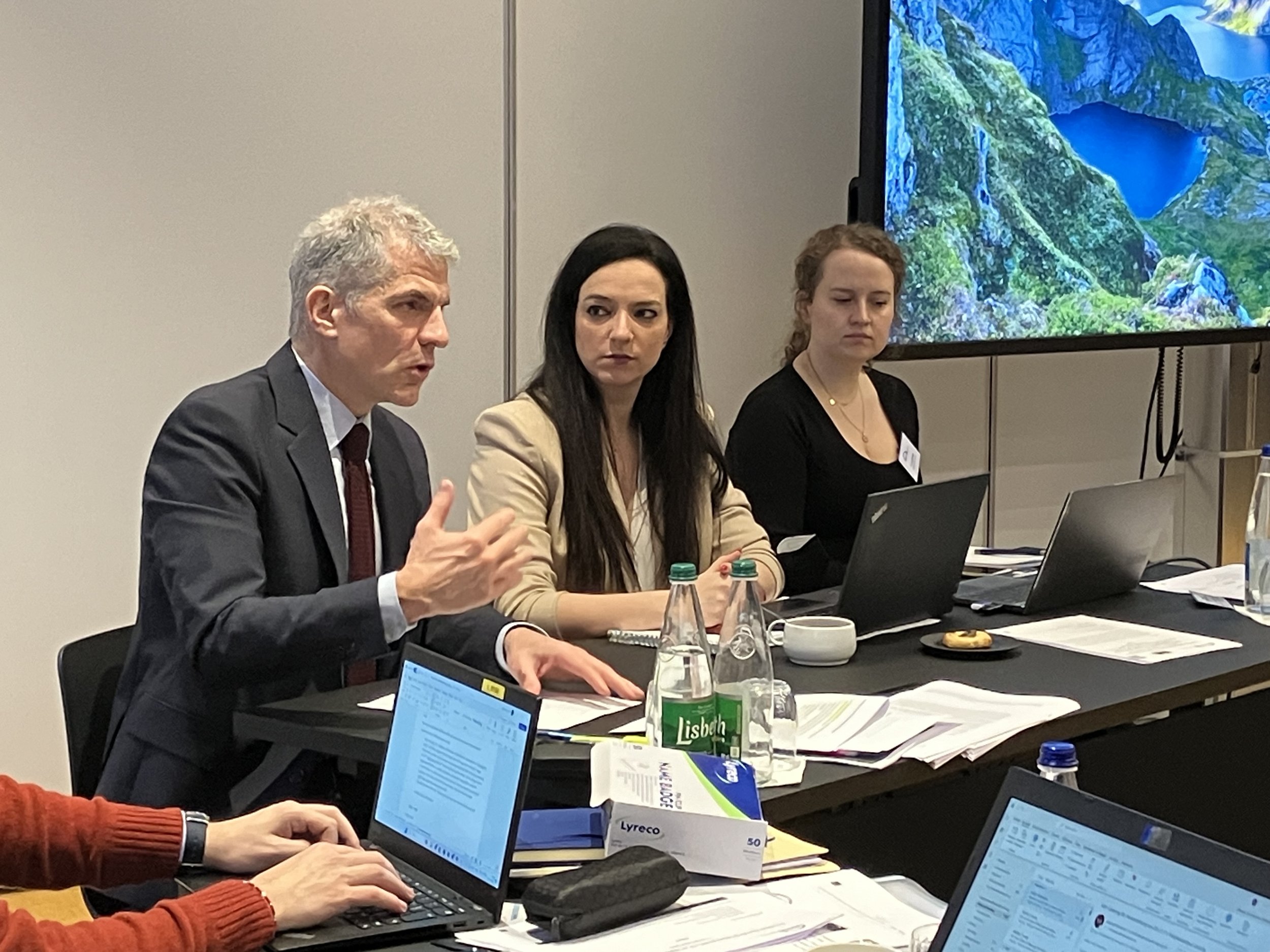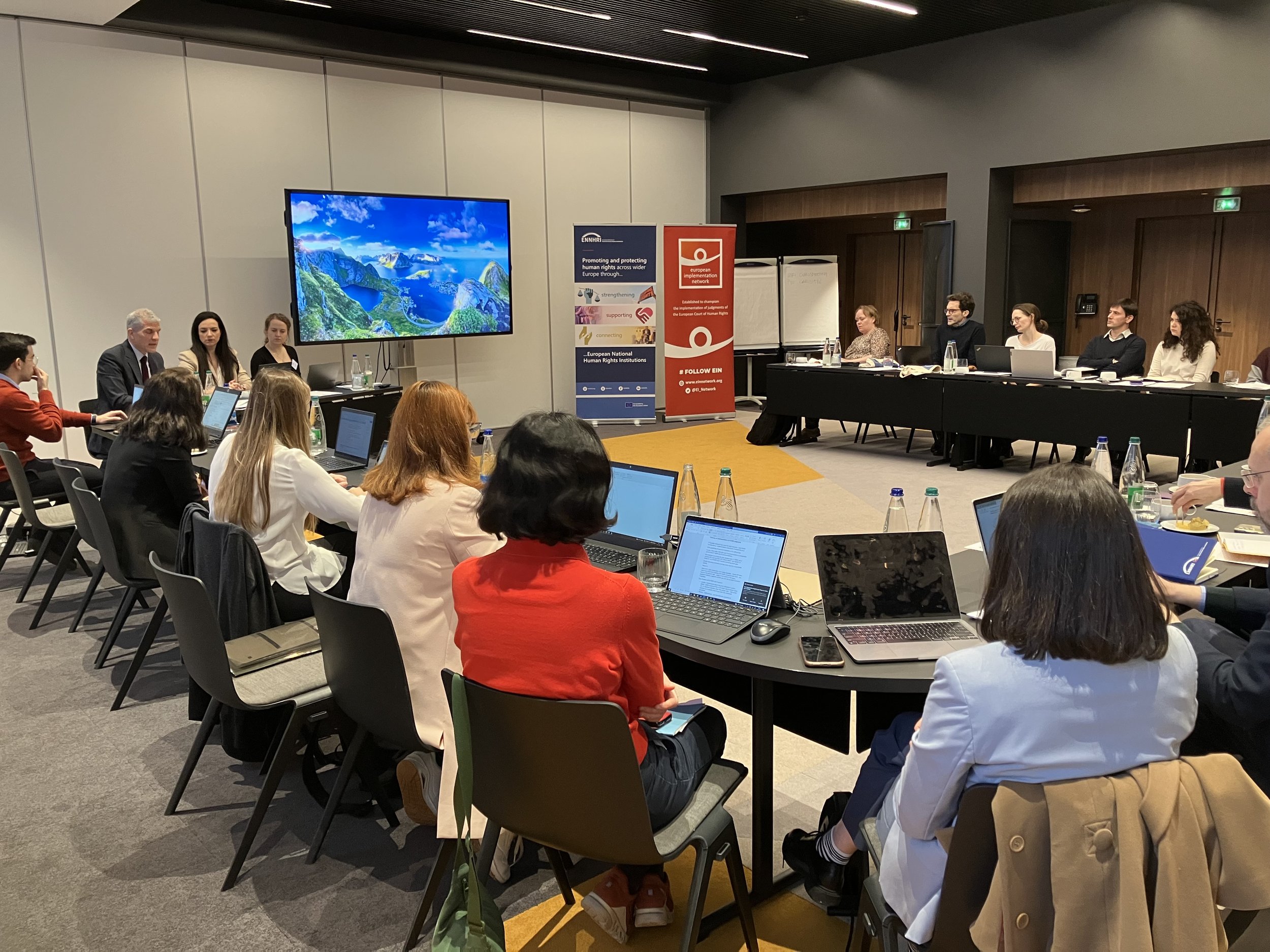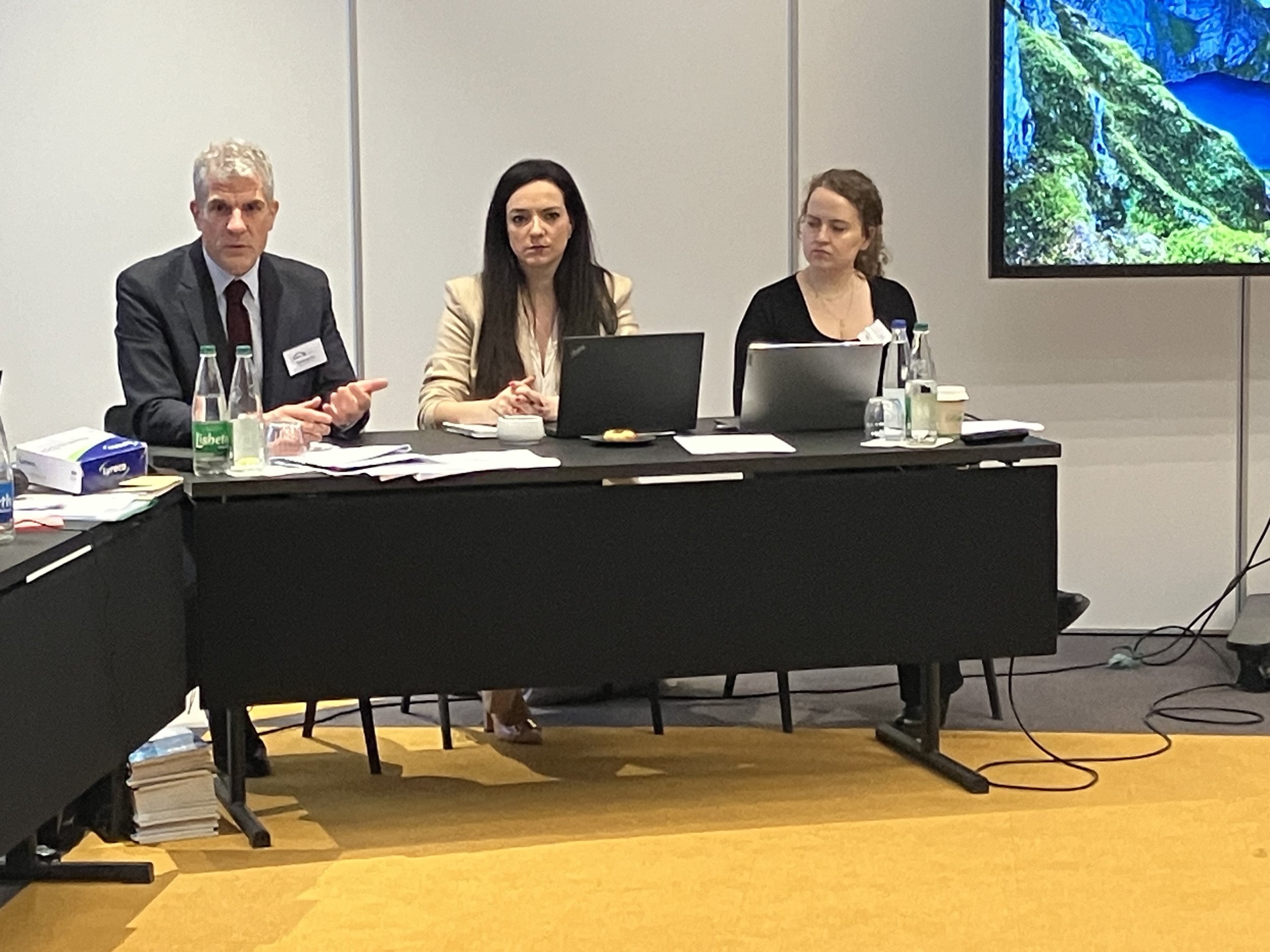Capacity Building: ENNHRI, EIN and CoE Department on Execution of Judgments of the ECtHR
/On November 15th, EIN, ENNHRI and the Council of Europe’s Department of Execution for the Judgment of the European Court of Human Rights facilitated a capacity-building training session in Strasbourg, France.
The training focused on enhancing the capacity of National Human Rights Institutions (“NHRI”) to contribute to the implementation of judgments of the European Court of Human Rights (“ECtHR”). The programme consisted of an introduction and three sessions on topics surrounding the ECtHR implementation process.
Opening comments and instructions were made by Leena Leikas, Chair of ENNHRI Legal Working Group and Ioulietta Bisiouli, EIN Director, who set out the objectives & the structure of the training.
The first session addressed why NHRIs should take part in the implementation process and address the non-implementation of judgments of the ECtHR as a rule of law problem, This discussion was led by Paula Nowek, Human Rights Officer (Legal) at ENNHRI Secretariat, Patrick Schäfer, Head of Section of the Department for the Execution of Judgments of the European Court of Human Rights, Council of Europe, and Ioulietta Bisiouli, EIN Director.
The next session aimed to provide NHRIs with an overview of the implementation process in Strasbourg and the mandate of the Council of Europe Committee of Ministers and their role. This session covered the supervision of the execution of judgments and decisions of the ECHR led by Patrick Schäfer, Head of Section of the Department for the Execution of Judgments of the European Court of Human Rights, Council of Europe, and how to write effective Rule 9 submissions by Gohar Simonyan, Legal Officer, Department for the Execution of Judgments of the European Court of Human Rights, Council of Europe. This session concluded with a presentation about NHRI’s role in the implementation process presented by Michael O’Neill, Head of Legal at Irish Human Rights & Equality Commission, who shared his experience.
Agnes Ciccarone, EIN Programme Manager, outlined the “The Dos and Don’ts for Rule 9 submissions in the implementation process”, followed by Laurens Lavrysen, Jurist at the Belgian NHRI (FIRM), who presented his own experience with submitting Rule 9 submissions to the implementation process. The next session offered participants practical insights into how to draft Rule 9 submissions to the Committee of Ministers by working in small groups to discuss how they would submit a Rule 9 for a pending ECtHR case.
The last session addressed how NHRIs can become more engaged with the ECtHR judgments implementation process at the national level and the national advocacy strategies that could be employed by NHRIs. Ioulietta Bisiouli, EIN Director, introduced the topic by discussing why national advocacy for the implementation of judgments is necessary. Next, Ioana Iliescu, EIN Law and Advocacy Officer, set out examples of how NHRIs can advocate for implementation at the national level. Finally, Simona Drenik Bavdek, Assistant Head of the Center for Human Rights at the Human Rights Ombudsman of the Republic of Slovenia, shared her experiences on setting up a national oversight mechanism for ECtHR implementation in Slovenia.
The training wrapped up with a peer exchange/discussion with participants. Leena Leikas, Chair of ENNHRI Legal Working Group, Patrick Schäfer, Head of Section of the Department for the Execution of Judgments of the European Court of Human Rights, Council of Europe, and Ioulietta Bisiouli, EIN Director, closed the training session and thanked all participants for attending and their engagement.
We thank everyone who joined the training, and we hope to see your submissions and engagement with the implementation of ECtHR judgments in the future.




